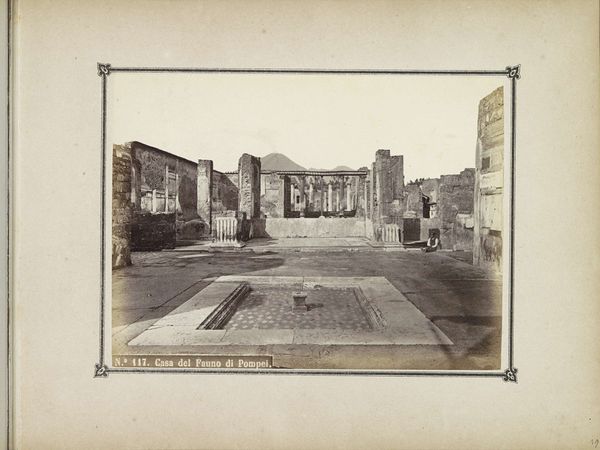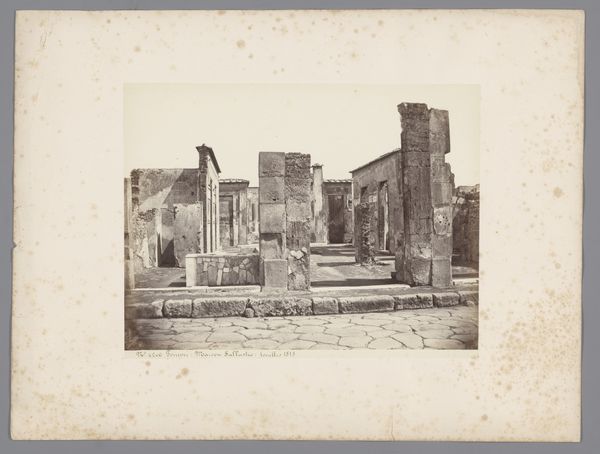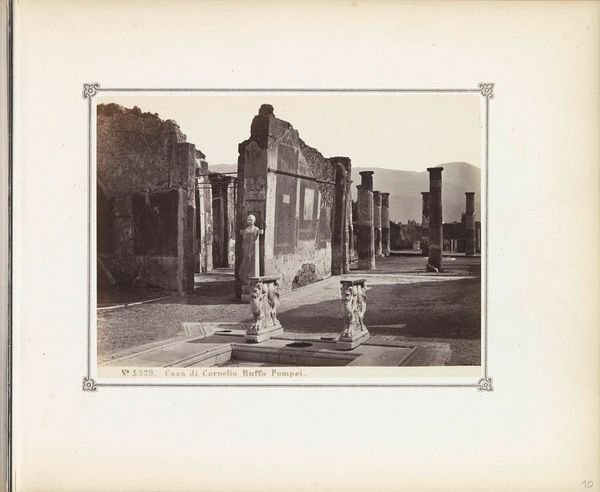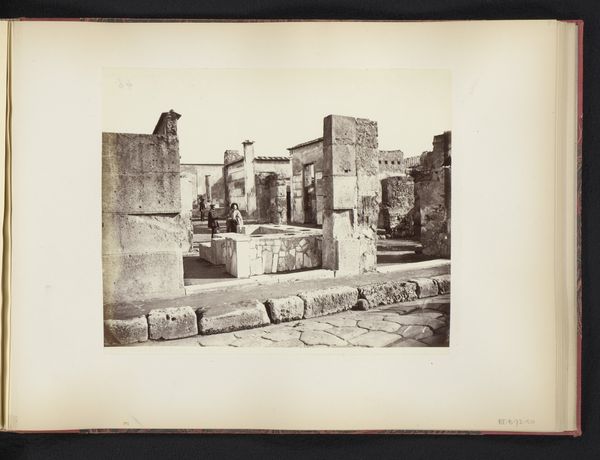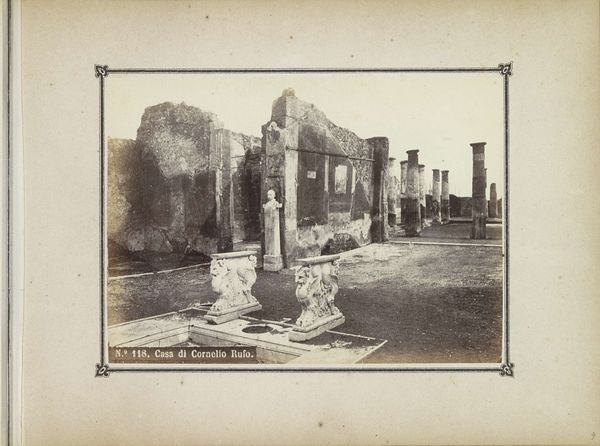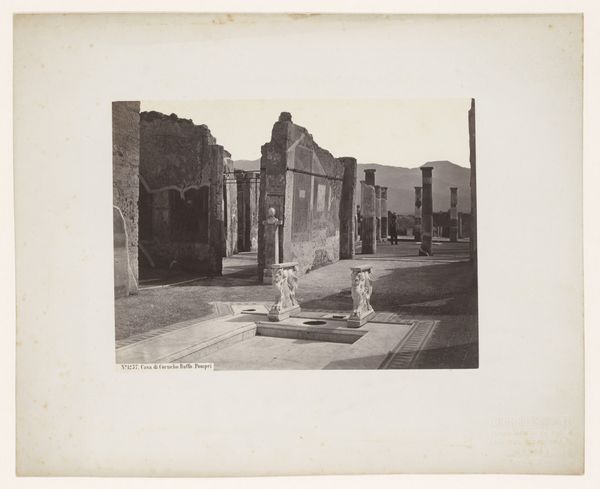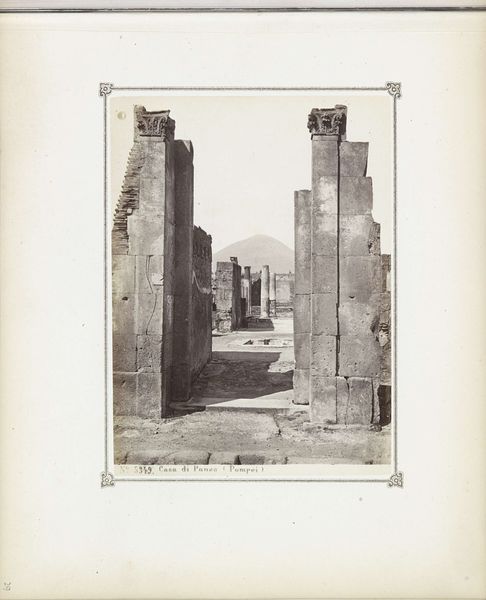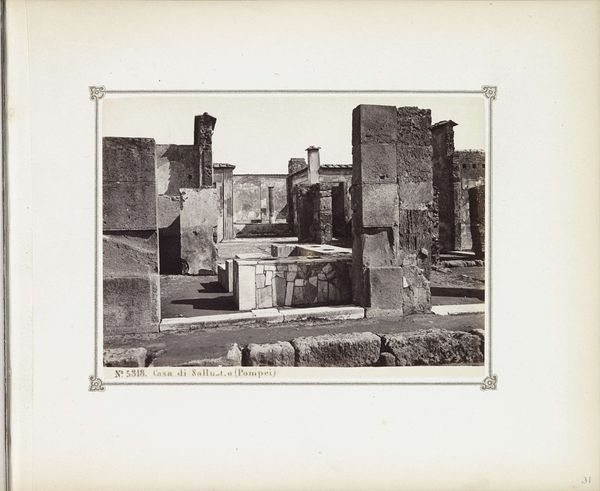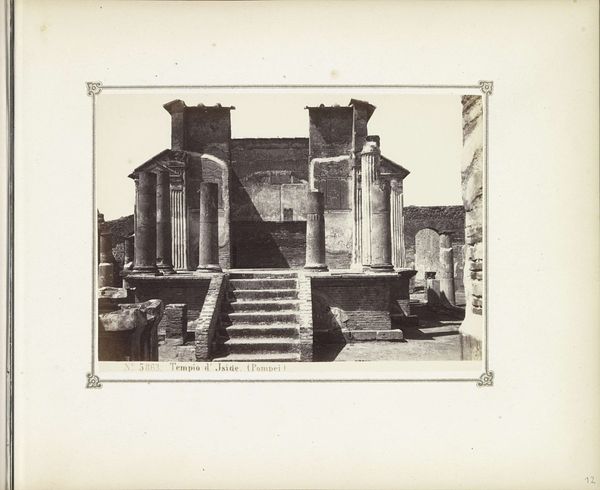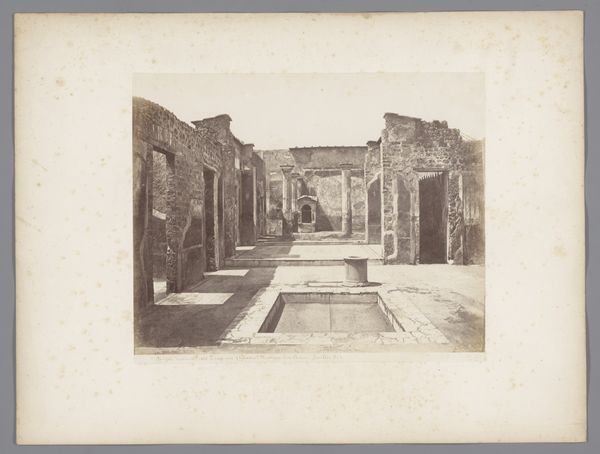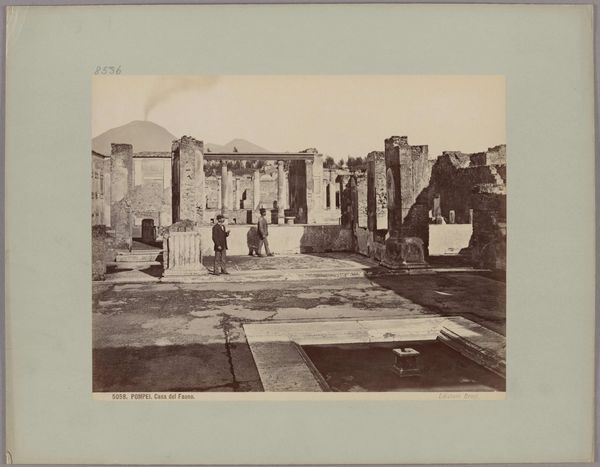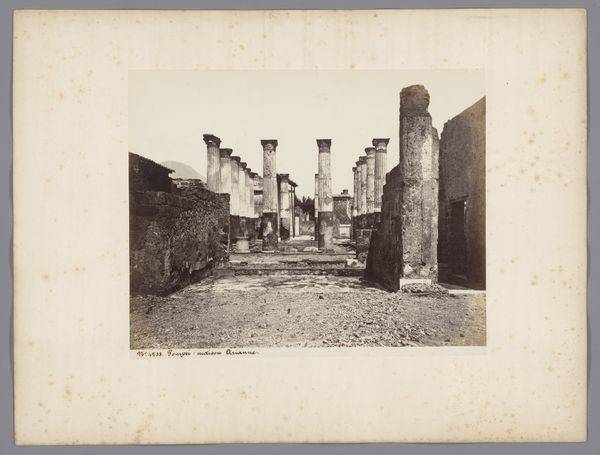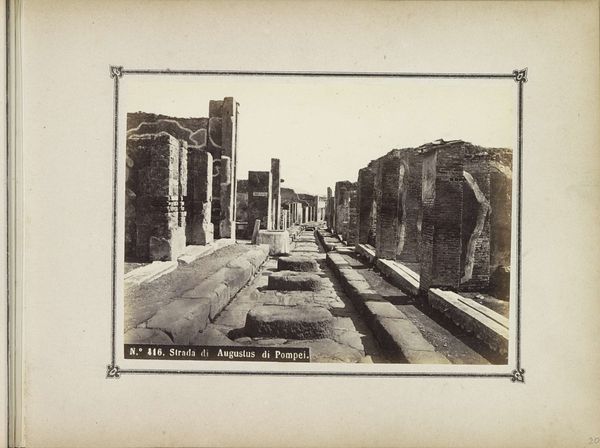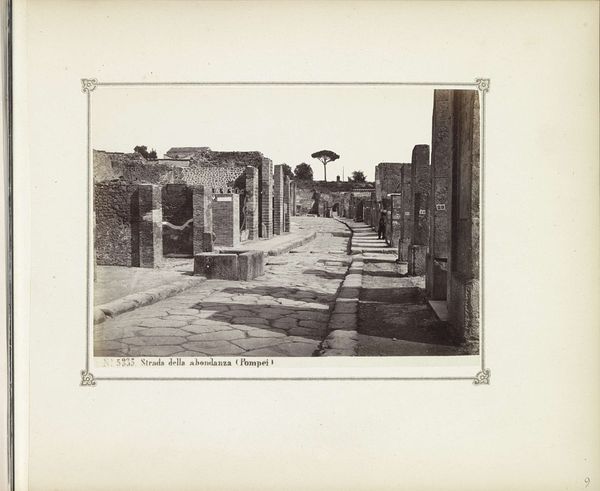
#
aged paper
#
toned paper
#
light pencil work
#
ink paper printed
#
old engraving style
#
sketch book
#
personal sketchbook
#
old-timey
#
19th century
#
watercolor
Dimensions: height 106 mm, width 140 mm
Copyright: Rijks Museum: Open Domain
Editor: This photograph, "Restanten van het Huis van Sallustius in Pompeï," was taken by Roberto Rive sometime between 1860 and 1900. It looks like it’s mounted in a sketchbook, printed on aged, toned paper. The crumbling walls and open doorways really draw the eye in; it feels very classical, almost staged, but what catches your eye in this work? Curator: The framing, of course, dictates much of our understanding. Note how Rive uses a very shallow depth of field, pushing our attention to the immediate foreground, blurring the distant openings, obscuring deeper narratives. Editor: Ah, I see it now! So, by controlling the focus, Rive isn’t just documenting, he’s also guiding our experience. Curator: Precisely. Consider also the tonal range—the subtle gradations in the grey tones creating a delicate balance between light and shadow. The very structure emphasizes absence. Do you agree? Editor: Absolutely, now that you point it out. The paper tone almost seems to merge the foreground and background in specific areas. Do you think the contrast would be different if this had been shot using a different photographic paper? Curator: A different paper stock or printing process would have undoubtedly yielded a differing composition—possibly losing the hazy effect. Its beauty rests, too, in its structural and material integrity. Editor: So interesting! It’s more than just a historical document; the materials and method contribute significantly to its meaning. I’ll never look at an old photograph the same way again. Curator: Indeed. Visual form constructs meaning. Thank you for the discourse.
Comments
No comments
Be the first to comment and join the conversation on the ultimate creative platform.
